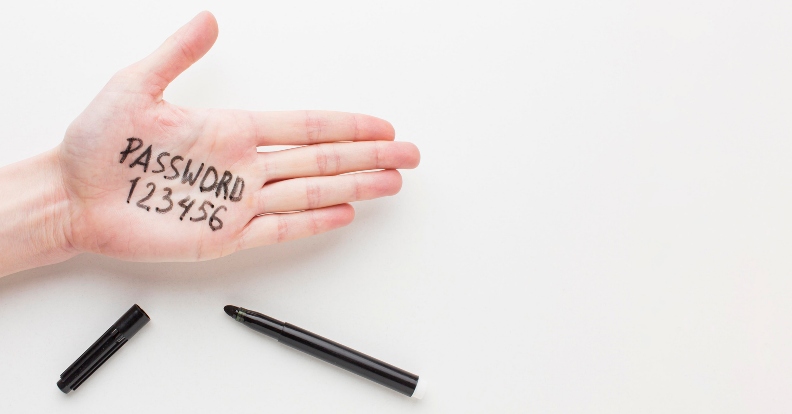it’s convenient, but…
2023. november 18. - … it can be dangerous. Take care when you are wireless.

“You are the key!” This is the title of the 2023 campaign of the 15-year-old Media Union Foundation in cooperation with the Hungarian Banking Association and the CyberShield program. The campaign is aimed at highlighting the dangers of cyberspace, and the need for online consciousness. “Personal data are usually disclosed during online administration or banking, on social media platforms, and while using cloud-based systems. In most cases, this is all right because such systems are equipped with strong and continuous data protection. So cybercriminals now target users directly, employing increasingly sophisticated and successful methods”, says Ferenc Kardos, executive director of the Media Union Foundation and leader of the cyber security education campaign titled “You are the key!” More than one fifth, i.e. 21.8 percent, of Hungarian users have fallen victim to online fraud according to a cyber consciousness survey conducted by the Media Union in cooperation with IPSOS. So our passwords and bank card data are definitely in danger. That is why the Media Union’s campaign is focused on cyber consciousness and online data protection.
Just as many people still hide their savings in envelopes or between the pages of an encyclopaedia, most of us are hesitant to keep their data online. This is a surprising conclusion of research conducted by the Media Union and IPSOS. The majority, i.e. 74 percent of the survey participants think that their data are safer offline than online. But they are wrong. “In certain cases, online (cloud-based) data storage is much safer than hardware solutions at home”, points out Gabriella Biro, head of the National Bank’s IT Supervision Department, a CyberShield expert. “If you know basic security routines and protection measures, your banking data, family photos and official correspondence have a much better place in an online system than on the storage drive of our home computer, or printed out and stashed in a drawer. Of course, that requires due care: just as you do not leave your door key in the lock, you must safeguard your online login data.”
As the “You are the key!” campaign research has revealed, the vast majority of users have at least heard about the most frequent online security tools. Firewalls are the most widely known, as 75 percent of the respondents know these solutions. Firewalls appeared when personal computers proliferated in Hungary. A firewall is nowadays built into your operating system, i.e. you just have to turn it on. Two-factor authentication is second on the awareness list, as 70 percent of all users have heard about it. The third option involves the rejection of cookies, which is known by 53 of the respondents. These ratios seem to give rise for optimism, but other survey results indicate problems.
Many people make the mistake of using the same password for several or all of their online accounts. The survey confirms that 55.7 percent have a password used on several websites. “With the right settings, banking, administrative and cloud-based data storage systems protect your data with reliable “locks”, but that is of no use if you use one and the same password everywhere”, notes CyberShield expert Gabriella Biro. Many people do not know the characteristics of a strong password. Fortunately, there is no need to rack your brains because password generators offer a fast and safe solution. Two-factor identification is another simple but very effective tool. In this case, the website requests a code or other confirmation after you have entered your password. That second code is sent to you in a text message or through an authentication app. So this method is like equipping your apartment door with a second bar lock.”
Many argue that they would never disclose personal data on suspicious platforms. But this assumption should be reevaluated. “Gone are the times when phishing attempts were easy to identify on the grounds of poor spelling or suspicious-looking links”, says CyberShield expert Ágnes Sütő, Deputy Secretary General of the Hungarian Banking Association. “Cybercriminals now use increasingly sophisticated tools, such as websites that perfectly match the sites of well-known delivery companies. And they often call you from a phone number that looks official.”
In these novel fraud cases, users willingly disclose their bank card data, their netbank login information, or their PIN codes, because they believe that the data was requested by the bank or an authority.
“It is crucial to know that neither the bank nor another legitimate service provider asks for that data. Such a request should immediately make it clear to you that you are talking to a fraudster, even if he appears to have called you from the bank’s legitimate phone number”, explains Ágnes Sütő from CyberShield. “It is really important to keep that in mind, because your bank is not obliged to reimburse you for any loss resulting from the careless disclosure of your data. So you are unlikely to get your money back.”
It is encouraging that the majority (69.9 percent) of the survey respondents who had fallen victim to online fraud at least knew who they should contact for help. Among those who had not been victims yet, there were conscious users, while the rest had merely been lucky. The results indicate that the latter group is larger. The “You are the key!” campaign provides them with effective tools for additional confidence in the online space.
As the Media Union and CyberShield are committed to cybersecurity education, they have set up a website listing the characteristics of the most frequent fraud types. The list is not comprehensive because fraud methods are varied and tailor-suited, but if you comply with the basic requirements, your crucial data may well be safe.
Protect yourself from online fraud. Be security-conscious.